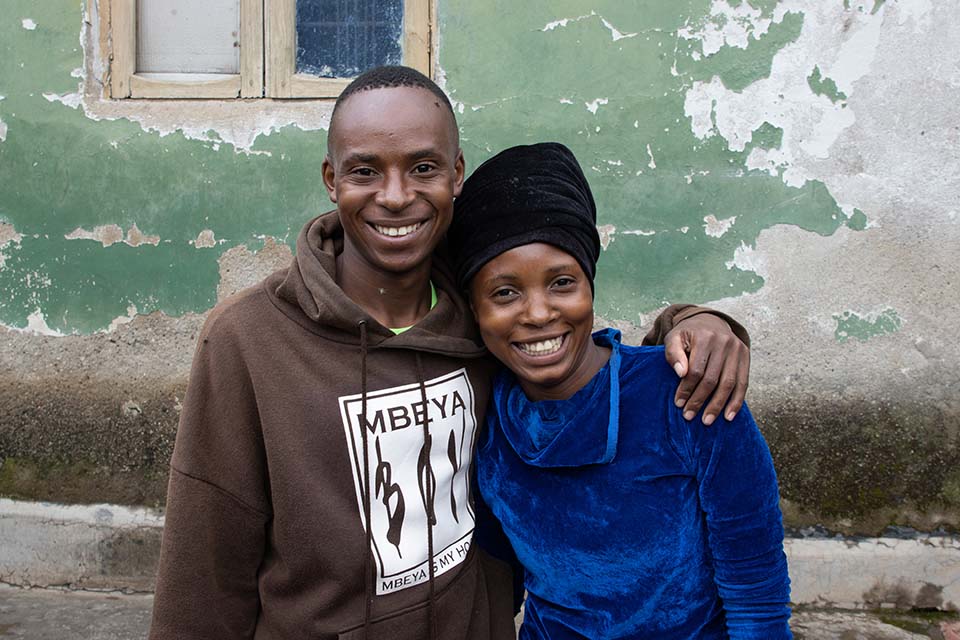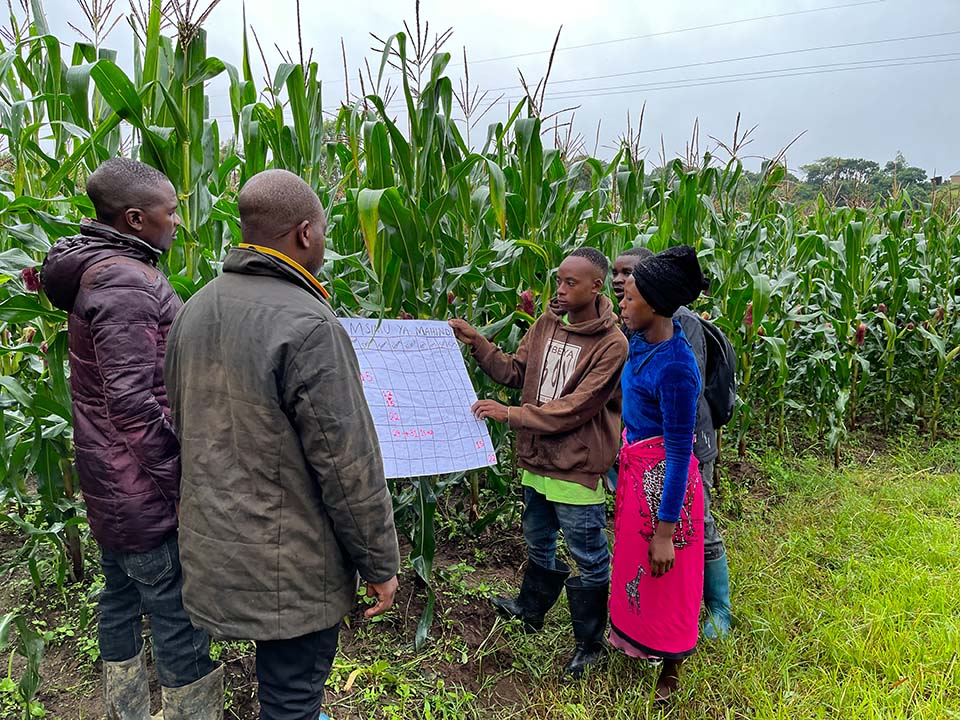

Farming Skills Lead to Tanzania Business Venture
When Ashfa Mwakamala was growing up, she never had a dream job. She says she barely thought about career options. She assumed that, like her mother and her grandmother and the other women in her small village of Horongo, in Tanzania’s Mbeya region, she too would become a cook or cleaner or stay home to care for the children.
Today, 22-year-old Ashfa co-owns more than 3.5 acres of land and is a successful coffee and corn farmer.
Her life’s trajectory changed a few years ago, when Catholic Relief Services began a project called Kahawa ya Kesho, or “Coffee of Tomorrow.” The project aims to sustainably increase coffee production, engage young men and women in inclusive coffee value chains, build entrepreneurship and business skills, and diversify livelihood activities for rural young people and their families. To ensure equal participation in the project, women were encouraged to join.
Ashfa and her younger brother Ahadi decided to sign up.

Ahadi and Ashfa Mwakamala, siblings and agricultural business partners, stand outside their home in Tanzania’s Mbeya region.
Photo by Jennifer Lazuta/CRS
“Before I joined, I knew only that growing coffee was a man’s business,” she says. “Women were not supposed to do it. But once I received the training, I realized that I too could do this—to earn money and benefit from growing coffee.”
As part of the project, Ashfa and Ahadi were trained on everything from technical agricultural skills—such as how to prune coffee plants—to the business skills needed to sell their harvests. They were also introduced to the concept of community-led savings groups, where they could both save their money and take out small loans to further grow their business.
While waiting for their first coffee harvest to grow, the siblings decided to become business partners. By combining the loans they borrowed from the savings group, they could buy coffee from other small farmers and sell to bigger companies at a profit. The work was slow and the gains were not great, but they were eventually able to save enough to buy their own plot of land.
Ashfa said that at first her decision to go into the coffee trade was seen as strange by many people in the community. Both her status as a businesswoman and the money she makes through her work are very different from that of most other women.
But with the support of her brother, family and husband, their neighbors now stand by and encourage Ashfa. More young women have joined the activities.
“In our community, we had a perception that there are roles only for women and only for men,” Ahadi says. “Me and my sister, when we decided to collaborate and invest, some people were surprised and concerned. They thought she was going in the wrong way. But now they realize it is a good thing and are asking her for advice.”
As their coffee business grew, Ashfa and Ahadi were eager to learn more. In 2021, when CRS implemented a new four-year agricultural and food security project, they took part in the trainings. The goal of the latest project is to help young people increase their income by improving productivity for corn and bean value chains and reduce post-harvest losses.
While their family has always grown corn, Ashfa says that in the past they planted the land without using any standard techniques or new technologies such as seed spacing or irrigation ditches. As part of the project, participants learn by working on demonstration plots.

Ashfa and Ahadi review the planting calendar with other youth farmers from CRS’ Growing Hope Globally project, at their demonstration plot in Horongo village in Tanzania’s Mbeya region.
Photo by Jennifer Lazuta/CRS
Crop yields were very low before learning these techniques, “but using what they taught us … we are seeing our yields more than double,” Ashfa says. She notes that her family used to harvest around four sacks of corn from their land, and now they get around nine using the techniques she learned.
Ashfa and Ahadi recently purchased a motorcycle to help them get to their fields and transport goods. She and her brother say they are very grateful for both projects and plan to continue working together in their business.
Ahadi is now saving his money to build a house for his future family. As for Ashfa, she says she dreams of becoming a “famous businesswoman” and saving enough money to finish her own home. They both want to buy more land together.
GROWING HOPE PROJECT-TANZANIA
The most recent project Ashfa and Ahadi joined is the Enhanced Youth and Private Sector Engagement in Sustainable Agricultural Production, Household Food Security, and Livelihood Improvements project. It is a four-year initiative funded by Growing Hope Globally and private donors. Implemented by Catholic Relief Services, the project’s goal is to improve household food security and livelihoods for young people ages 18 to 35 within the area of the Mbeya District Council in Tanzania. The objectives of the project are to improve productivity for corn and bean value chains, reduce post-harvest losses, ensure young people increase their income, and improve gender relations at the household level. Through collaboration with local government authorities and the private sector—and by applying an approach that engages young people with their families, communities and governments so they can reach their full potential—the project has reached 318 women and 222 men.

